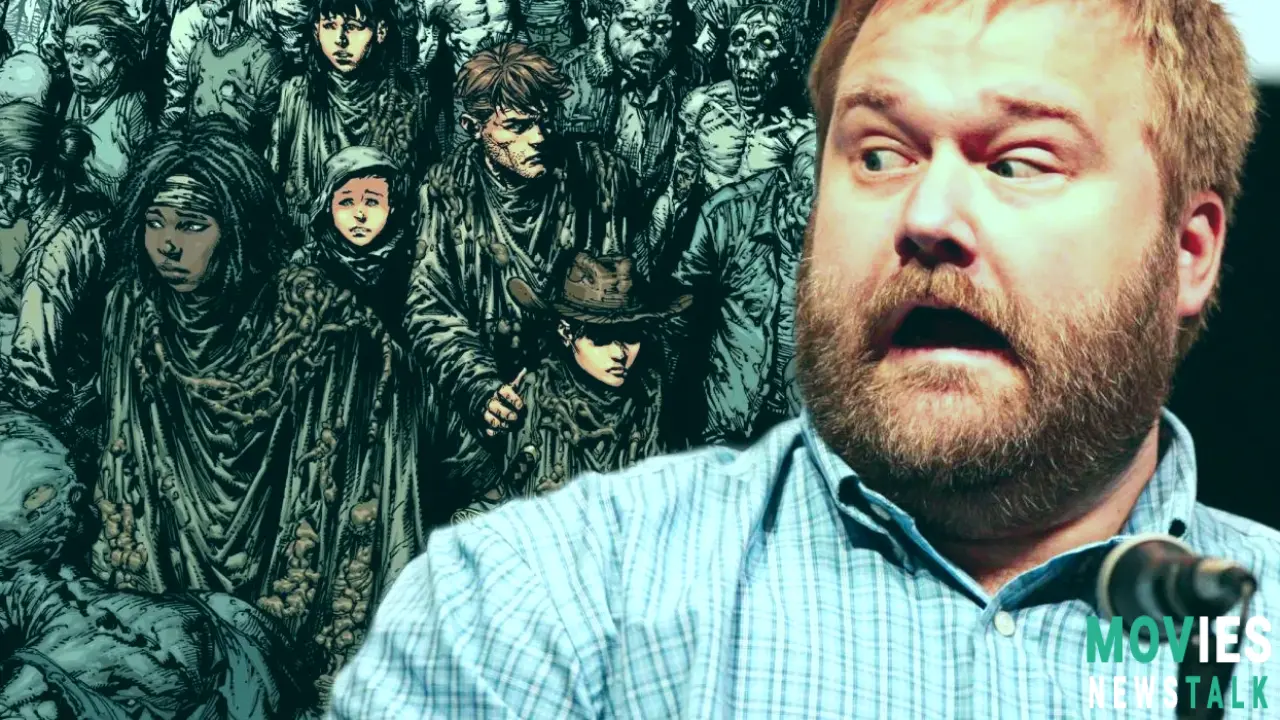A Critical Examination of The Walking Dead's Survivors
Even though he disagreed with the criticism, Robert Kirkman, the author of the renowned comic series The Walking Dead, said that it tormented him. This analysis focused on the major characters' deeds and how they affected the communities they came across, as reported in The Walking Dead Deluxe #93. Kirkman defended his characters and the narrative decisions he made, even if he acknowledged the merit of the critique.
The Critic's Voice
In his comments for The Walking Dead Deluxe #93, Kirkman acknowledged that some people saw the show as a story about the characters leaving a trail of destruction in their wake. He opened up, "Detractors would say that this was just a story of the characters moving from community to community, leaving destruction in their wake...and trust me, the detractors are the voices you hear when you're lying awake at night." Even if he disagreed with this judgment, he acknowledged that this critique was persistent and that it had the ability to remain in his mind.
The Moral Complexity of The Walking Dead
The storyline of The Walking Dead skillfully combines themes of community building, survival, and the fight to preserve humanity in the face of post-apocalyptic destruction. Despite Rick Grimes' frequent portrayal as the protagonist, the show explores the moral dilemmas raised by survival. This is especially clear in the Governor and his community's introduction, which illustrates the various ways in which society can be rebuilt in the aftermath of a disaster.
Not all of Kirkman's characters are perfect, even Rick Grimes. Their own desires and impulses drive them, which frequently results in decisions that are morally dubious. One example of how the protagonists can get involved in violence and dubious activities even with the best of intentions is when they seize control of the Alexandria town.
The Walking Dead's Realism
The Walking Dead's commitment to reality is one of its strongest points. The show acknowledges the imperfections that are part and parcel of the human experience by showing the moral shortcomings and contradictions of its characters. The characters are shown as people who must make tough decisions in a cruel world rather than as glorified heroes.
The Walking Dead distinguishes itself from other post-apocalyptic stories by delving into the nuanced aspects of moral judgment. It questions established ideas of right and wrong by making characters face tough decisions and the repercussions of their choices. Even while it can be unsettling at times, this realism helps to paint a realistic and approachable picture of human nature in the wake of a catastrophic occurrence.
Past the Criticism
Even if some readers may identify with the condemnation of the protagonists' destructive inclinations, The Walking Dead is ultimately a tale about resiliency and the human spirit that never dies. The protagonists' motivations include survival and building a better future for themselves and their communities, despite their flaws. Even in cases where their activities are contentious, they frequently act out of a sense of duty and a desire to keep the people they love safe.
The Walking Dead is a gripping examination of human nature in the face of disaster through its examination of nuanced individuals, moral quandaries, and the harsh reality of survival. The series gives a compelling and realistic look at the difficulties of existence and the decisions we make when faced with the unthinkable, even though it may not always give an idealized picture of humanity.

